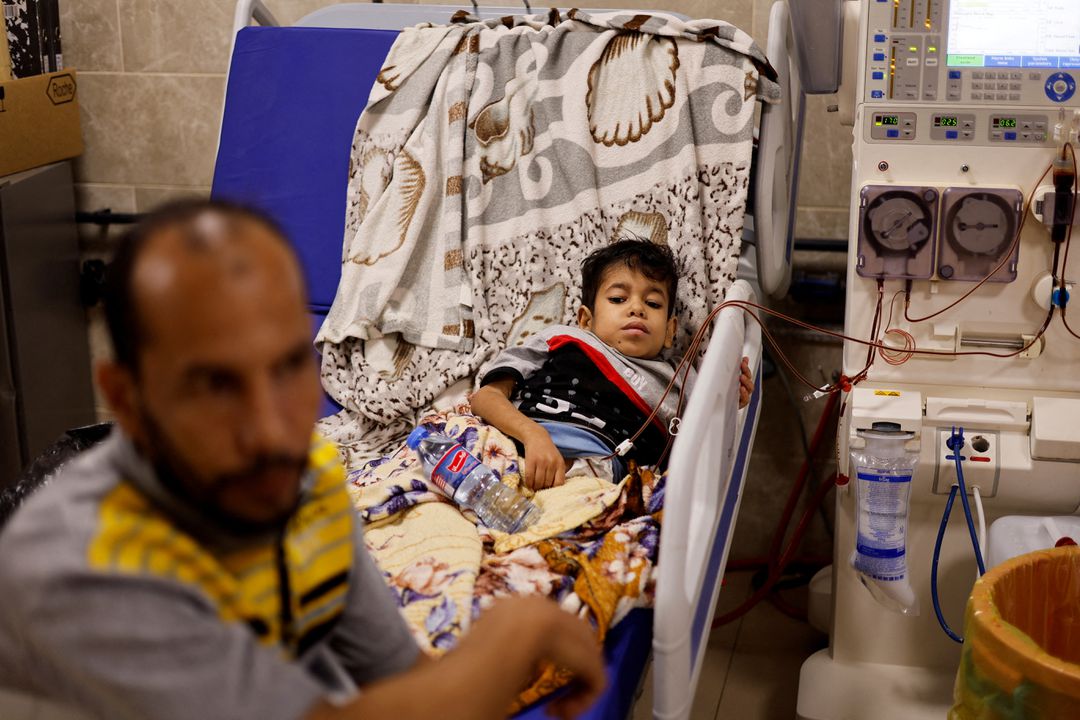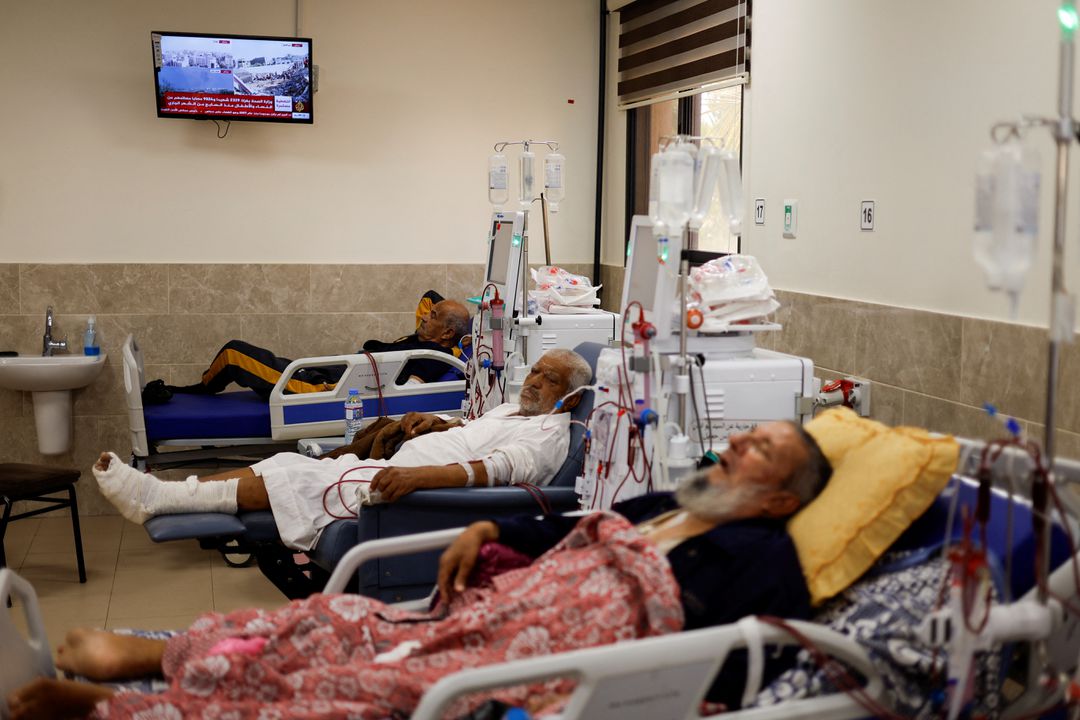Gaza hospitals struggle to cope with air strikes, blockade


GAZA — As Gaza residents brace for an Israeli ground offencive, after days of intense air strikes and a blockade, in response to the attack by the Palestinian militant group Hamas, health ministry official Ashraf Al-Qidra wonders how hospitals will cope.
Doctors have been scrambling to help a rising number of patients, including children injured in the air strikes, in overcrowded hospitals that are running short on medicines and fuel due to the blockade. Only the most acute cases are getting surgery because there are not enough resources, doctors said.
Hospitals across the enclave have only 24 hours more of fuel reserves, putting thousands of patients at risk, the United Nations humanitarian office (OCHA) said on Monday (Oct 16).
At least 2,750 Palestinians have been killed and 9,700 wounded since Oct 7, the health ministry said on Monday. Another 1,000 people were missing and believed to be under rubble.
Qidra appealed to people to head to the Shifa hospital, the largest of the territory's 13 public medical facilities, to donate blood.
"If the hospital stops working, the whole world will be responsible for the lives of hundreds and thousands of patients who rely on our services, especially from Shifa," said Qidra.

Shifa serves the entire Gaza Strip but more directly around 800,000 people who live in Gaza City.
Israel is conducting its heaviest ever air strikes and is expected to launch a ground offencive in Gaza, one of the most densely populated areas in the world with 2.3 million people.
It has vowed to annihilate Hamas in retaliation for a rampage by its fighters in Israeli towns nine days ago in which its militants shot men, women and children and seized hostages in the worst attack on civilians in the country's history.
About 1,300 people were killed in the surprise onslaught, with graphic mobile phone footage and reports from medical and emergency services of atrocities in the overrun towns and kibbutzim.
Some Palestinians have fled their homes in Gaza City after the Israeli military warned them to head south.
But some people have said they were in danger of Israeli air strikes on that journey, and some are returning north due to insecurity and a lack of anywhere to stay in an increasingly overcrowded south.
Israel says its instruction to leave the north of Gaza is a humanitarian gesture to save Palestinians from harm. An Israeli military spokesperson said that unlike Hamas, Israel does not intentionally target civilians. The spokesperson did not directly respond to the specific allegation of attacks on convoys fleeing Gaza City.
Palestinians in Gaza said Israel's bombing campaign overnight was the heaviest since it began retaliatory attacks. Bombardment was especially heavy in Gaza City, with air strikes hitting the areas around two of the city's main hospitals, they said.

Saeed Al-Abdala was lying on a hospital bed hooked to a dialysis machine. He escaped bombing at his home in Khan Younis.
"I am getting kidney dialysis, and this process is very challenging, we suffer a lot. We suffer from transportation and moving around," he said.
"And now we are under war, war is destruction and death and torture. We are displaced from our houses and we are no longer in our homes. This is so hard."
Diplomatic efforts are underway to try to open an Egyptian-controlled border crossing into Gaza, with foreign aid donations being delivered to the Egyptian side.
In Khan Younis's Nasser Hospital, in the southern Gaza Strip, where ambulances carrying casualties continue to arrive, patients with chronic diseases face the prospect of medical devices failing.
"We have 220 (kidney) patients. Half of the devices will go out of service tonight and we will not be able to do dialysis for all of them," said doctor Mohammed Zaqout. "This is a human catastrophe."
Kidney patient Nahed Al-Khuzundar, who was forced to flee with his family from Gaza City to Khan Younis, said he had to take three dialysis sessions per week but has so far had none.
"My legs began to swell, I feel suffocated, and I need dialysis urgently," Khuzundar said as he waited outside the kidney department at Khan Younis hospital, where dozens of wounded have been arriving, along with the bodies of the dead.
ALSO READ: Palestinians fleeing to the south find no escape from danger